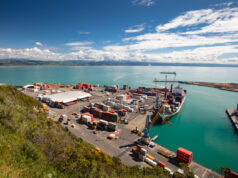The New Zealand Government’s multibillion-dollar plan to help stressed councils deal with their water assets expanded significantly in 2021, underscoring Jacinda Arden’s belief in the importance of robust asset management.
The Three Waters Reform Programme aims to address funding shortfalls, environmental challenges and inter-council communication problems by centralising the management of council-owned drinking water, wastewater and stormwater assets.
The key measure is the creation of four new regional entities that will collectively manage the nation’s water assets.
It’s perhaps not surprising that the idea, which was first unveiled in 2020, has met with some opposition: after all, it seemingly contradicts the mainstream view that local government is best equipped to deal with most public works infrastructure.
However, in New Zealand’s case, there is a strong case to be made for the centralisation of water assets. At present, many of the country’s 67 councils receive insufficient funding to deal with the growing impacts of climate change on their water.
What’s more, New Zealand has long struggled to prevent its intricate system of natural waterways and municipal water supplies from being contaminated by agricultural run-off. (A separate effort is underway to protect natural waterways.)
The Ardern Government pledged a $500 million support package for councils as part of the scheme, with a further $2 billion in budgets to come. The NZ Prime Minister’s stated aim is to ensure that no council is financially worse off as a result of the reform.
The finer points of the plan are noteworthy. There is a provision to retain all water assets in public ownership and an emphasis on community consultation at the council level.
Importantly, there is also a commitment to the creation of 6,000-9,000 jobs, with many of those roles focused on the practicalities of asset management. The government says the new system will grow GDP by $14 billion to $23 billion over the next 30 years.
IPWEA’s executive believes the Three Waters Reform Programme is worthy of praise. It finely balances the need for the co-ordination with the individual needs of communities, and it recognises the vital importance of asset-managing public infrastructure.
Next, New Zealand must commit to world-class asset management education programmes to ensure those additional 6,000–9,000 personnel have the capabilities required to fix the country’s entrenched water problems.
“Having sufficient capability to maintain assets over the long term is a vital component of major infrastructure initiative,” says Myles Lind, former President IPWEA New Zealand and current IPWEA President.
“Employing appropriately qualified asset managers and actively upskilling existing staff should be part of the plan from Day One.”
Lynd says the Three Waters Reform is a compelling proposition because it focuses on what are arguably New Zealand’s three most significant ongoing issues: public health and well-being, the environment and economic growth.
He concedes that opposition to the plan by some councils – several of which have opted out of Three Waters entirely – could be a drag on progress, at least in the short term.
However, he says the efficiencies created by the introduction of a co-ordinated, long-term asset management plan more than counterbalance the disruption.
“Fundamentally, asset management delivered by trained professionals creates net savings in terms of time and money spent on maintenance, repair and replacement,” he says.
“Effectively managing assets over their lifecycle delivers the best return on investment for communities and governments of all sizes.”














